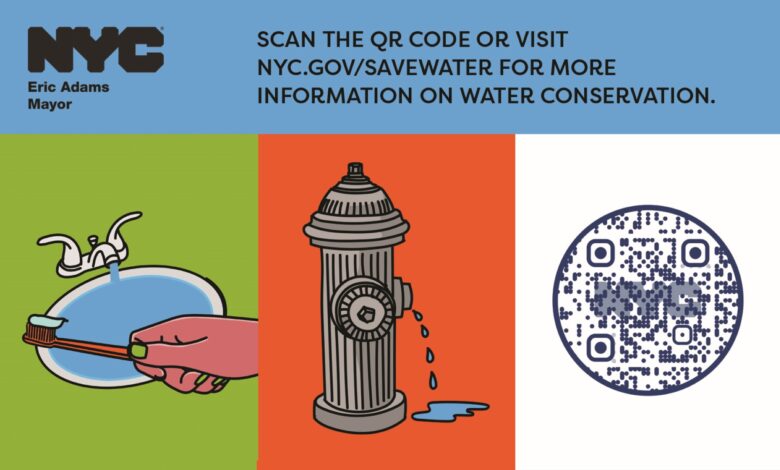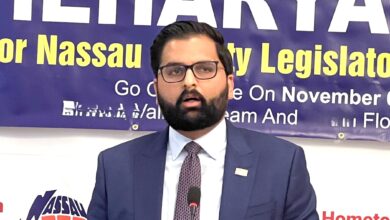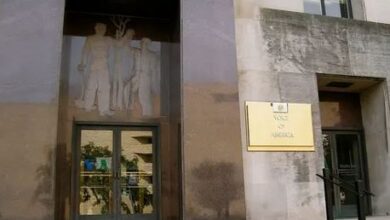
New York City is not often associated with the kind of drought we see in other areas of the country, but this fall has been a stunning exception. This past October saw the second-longest rainless streak in city records, dating back 155 years, to 1869. With November continuing to be warmer and drier as well, we have issued a citywide drought watch and are urging New Yorkers to conserve water wherever possible.
Every New Yorker can help by taking shorter showers and doing fewer loads of laundry, but there are many other simple and effective ways to conserve water in our city.
An open faucet uses two to three gallons of water per minute, so there’s no need to run the faucet while you’re shaving, washing your hands, or brushing your teeth.
A leaky faucet that drips at the rate of one drip per second can waste more than 3,000 gallons per year, so fix those leaks, if possible. You can also save even more water by installing water-saving fixtures like low-flow toilets and showerheads, as well as faucet aerators.
Run the dishwasher and washing machine only when full. Use short cycles if available. Turn off the water while washing dishes.
Don’t flush the toilet unnecessarily. According to the Environmental Protection Agency, toilets are, by far, the main source of water use in a home, accounting for nearly 30 percent of an average home’s indoor water consumption. Each flush can use 1.6 gallons, with older models using as much as 6 gallons.
Sweep driveways and sidewalks clean rather than washing them down with a hose.
Report any open fire hydrants and street leaks to 311. An open hydrant can release more than 1,000 gallons per minute, which wastes 1.4 million gallons of drinking water in a 24-hour cycle
For even more ideas, visit DEP’s Water Savings Tips website.
New York City is justifiably proud of our water system, and we are determined to protect one of our most precious resources. All of us who rely on the city’s water supply, including 8.3 million consumers in the city and another 1.5 million upstate, must make concerted efforts to conserve water, especially during these extended dry periods.
We’re going to do our part as a city as well, requiring our city agencies to update their water conservation plans and implement them as quickly as possible.
By pulling together and saving water, we can do even better by our city — slowing the depletion rate of city reservoirs and avoiding a more serious drought that would require further restrictions in the future.
Let’s work together to save water, and when the rain does return, try to remember where you left your umbrella.
November 8th, 2024



